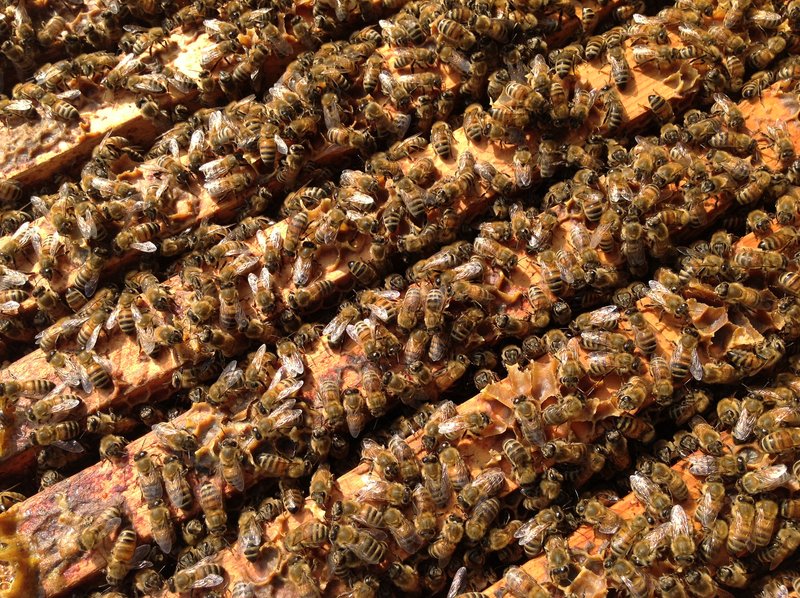Back to August 2014 Newsletter
Pollinator Patch: Update on Honeybees and Neonicotinoids

What about the situation in Canada? We lost an average of 25% of honeybee colonies across the country this winter, and 28% during the 2012/2013 winter. However, of all the provinces, Ontario suffered the most, with 58% of its 100,000 colonies dying. These are the highest losses recorded in Ontario, according to the Ministry of Agriculture’s provincial apiarist Paul Kozak. In Canada, winter losses since 2009/2010 average out at around 20%, though they were as high as 35% in 2007/2008. Historical averages of winter losses typically hover around 15%.
Weather seems to be one of the factors that may account for this year's high losses. The cold and long winter of 2013/2014 was followed by a cold and wet spring, conditions that honeybees don’t favour. Beekeepers also reported starvation (lack of forage), poor queen health, and weak colonies in the autumn that didn't survive the winter, as potential problems. Ontario and Quebec beekeepers, in particular, found that acute and chronic pesticide damage, and the fact that the bees weren’t able to recover from pesticide incidents in the previous year, contributed to winter mortality. In other words, these beekeepers believe that exposure to neonicotinoids in the spring and summer contributes to winter losses, and a growing body of scientific studies backs up these claims.
But why was the mortality of bees so high in Ontario, even though the rest of the country experienced a long cold winter as well? It may be due to southern Ontario’s warm climate, which makes it one of the few suitable areas to grow corn for ethanol and animal feed. The province grows 62% of the country’s corn, followed by Quebec at 30%. Corn seeds are treated with neonicotinoid pesticides, usually at concentrations four times higher than those applied to soybean or canola seed.
Bee losses in Europe, which imposed a two-year moratorium on some neonicotinoid pesticides in December 2013, were much smaller. Last year, approximately 33.8% of honeybee colonies did not survive Britain's winter. This was the highest death rate in Europe. This year, just 9.6% of honeybees were affected over the winter. In other countries, mortality rates over the 2013/2014 winter ranged from 6% in Norway to 14% in Portugal. Overall colony loss was 9%, the lowest loss rate recorded since the international working group started collecting data in 2007.
According to the coordinator of the COLOSS Monitoring and Diagnosis Working Group, Dr. Romée van der Zee, “The contribution of many factors which are correlated to colony losses seem to be very dependent on weather conditions. Colonies built their brood nests late because of the relatively cold spring in 2013. This may have decreased the number of reproductive cycles of the parasitic varroa mite, producing fewer mites. Good weather in the summer then provided excellent foraging opportunities.”
Last month, Ontario’s Minister of Agriculture, Jeff Leal, announced that Ontario would assess whether to implement restrictions on neonicotinoids by regulating their use through a licensing system. His proposal followed a report released by the Task Force on Systemic Pesticides, a group of 50 scientists from around the world. The scientists reviewed over 800 studies published over the past 20 years, and found that neonicotinoids were conclusively causing damage to bees and other species, and ought to be banned. Ontario’s disturbingly high honeybee colony losses seem to support this conclusion.
What you can do:
The Organic Council of Ontario (OCO) is calling for Ontarians to write to Minister Jeff Leal, encouraging him to implement stringent restrictions on the use of neonicotinoids and to consider the many benefits of organic farming methods. See OCO’s call for letters here: http://www.organiccouncil.ca/news/action-4-pollinators
Not yet a member?
An annual membership to Seeds of Diversity gives you access to our seed exchange, seed grow-out programs, and our online news.

We depend on donations to do our work.

Thank you for your support!
